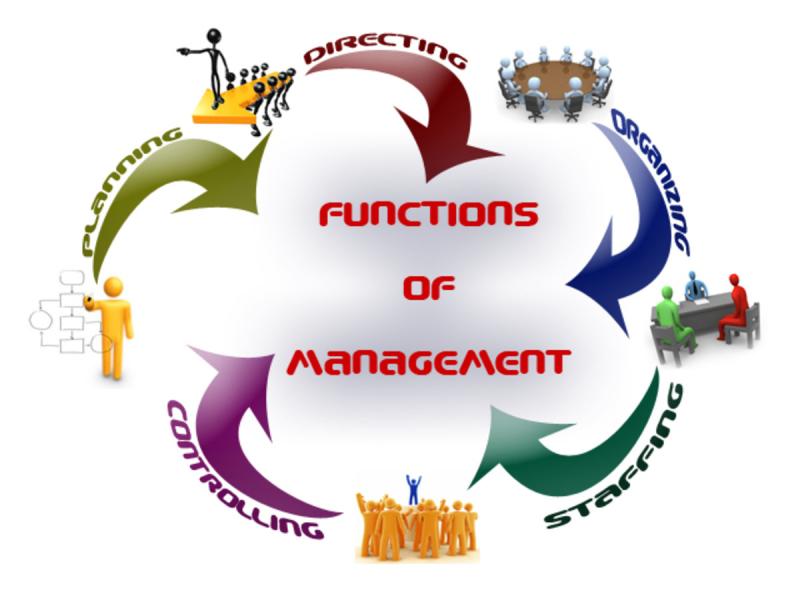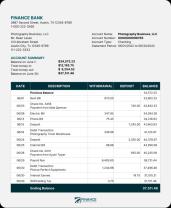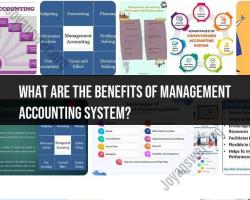What are the essential functions of Management?
Management involves a set of functions that are essential for achieving organizational goals and ensuring the efficient operation of a business or any other type of organization. The classical management functions, often attributed to Henri Fayol, provide a framework for understanding the key tasks that managers perform. These functions are commonly referred to as the "Four Functions of Management" and include:
Planning:
- Planning involves setting objectives and determining the best course of action to achieve those objectives. It includes defining goals, establishing strategies, and developing plans to coordinate activities.
Organizing:
- Organizing is the process of arranging resources and tasks to achieve the objectives set during the planning phase. This includes organizing people, tasks, and resources in a way that supports the effective implementation of plans.
Leading (or Directing):
- Leading involves influencing and motivating people to work towards the organization's goals. This function includes activities such as providing guidance, making decisions, resolving conflicts, and fostering a positive work environment.
Controlling:
- Controlling is the process of monitoring and evaluating activities to ensure that they are consistent with the plans and objectives of the organization. This involves measuring performance, comparing it to standards, and making necessary adjustments.
These four functions are often depicted as a continuous and interconnected cycle, emphasizing that management is an ongoing and iterative process. Here's a brief overview of each function:
Planning:
- Key Activities: Goal setting, strategy development, identifying tasks, decision-making.
- Outcome: Clear direction, coordinated efforts, and a basis for measuring progress.
Organizing:
- Key Activities: Establishing roles and responsibilities, allocating resources, creating structures.
- Outcome: Efficient use of resources, clarity in roles, and a structured organization.
Leading (or Directing):
- Key Activities: Motivating, communicating, decision-making, resolving conflicts.
- Outcome: Engaged and motivated employees, effective communication, and positive work culture.
Controlling:
- Key Activities: Monitoring performance, comparing results to standards, making adjustments.
- Outcome: Alignment with organizational goals, identification of issues, continuous improvement.
While these four functions provide a fundamental framework for management, it's essential to note that the practice of management is dynamic and can vary across organizations and industries. Additionally, newer management models and frameworks often include additional functions or modify these traditional functions to better suit contemporary organizational needs.
Core Functions of Management for Achieving Organizational Success
Management is a crucial aspect of organizational success, guiding and directing resources to achieve organizational goals. The core functions of management are fundamental principles that enable organizations to operate effectively and efficiently. These functions are interconnected and work together to ensure that an organization is well-structured, staffed, and directed towards achieving its objectives.
1. Planning
Planning is the process of defining an organization's goals, objectives, and strategies to achieve them. It involves setting clear targets, determining the necessary resources, and establishing a timeline for implementation. Effective planning helps organizations navigate the complexities of the business environment and make informed decisions.
2. Organizing
Organizing involves creating a structured framework for the organization's activities and resources. It includes defining roles and responsibilities, establishing departments and teams, and delegating authority. A well-organized structure ensures that tasks are coordinated, responsibilities are clear, and communication flows effectively.
3. Staffing
Staffing involves recruiting, selecting, training, and developing the organization's human resources. It ensures that the organization has the right people with the right skills and experience to achieve its goals. Effective staffing practices contribute to a high-performing workforce and enhance organizational capabilities.
4. Directing
Directing is the process of motivating, leading, and guiding employees to achieve organizational goals. It involves providing clear instructions, setting expectations, and offering feedback. Effective directing fosters a positive work environment, promotes employee engagement, and ensures that individual efforts align with organizational objectives.
5. Controlling
Controlling involves monitoring and evaluating organizational performance to ensure that it aligns with the established goals and objectives. It involves setting performance standards, measuring actual performance, and taking corrective actions when necessary. Effective controlling helps organizations identify areas for improvement, make informed decisions, and achieve desired outcomes.
The Role of Management in Planning, Organizing, Staffing, Directing, and Controlling
The core functions of management are not isolated activities but rather interconnected processes that work together to achieve organizational success.
Planning: Planning provides the foundation for the other functions by defining the direction and goals of the organization.
Organizing: Organizing establishes the structure and framework within which the other functions are carried out.
Staffing: Staffing ensures that the organization has the necessary human resources to execute the planned activities.
Directing: Directing provides the leadership and motivation to drive the organization towards its goals.
Controlling: Controlling evaluates the effectiveness of the other functions and ensures that the organization is on track to achieve its objectives.
Adapting Management Functions to Different Organizational Contexts
The application of management functions varies depending on the size, industry, and structure of the organization. For instance, a small startup may have a flexible and informal organizational structure, while a large multinational corporation may have a more rigid and hierarchical structure. Similarly, the specific techniques and tools used for planning, organizing, staffing, directing, and controlling may differ across industries.
Regardless of the organizational context, the core functions of management remain essential for achieving organizational success. Effective managers adapt these functions to the specific needs and characteristics of their organizations to ensure that they are operating efficiently and effectively towards achieving their goals.












